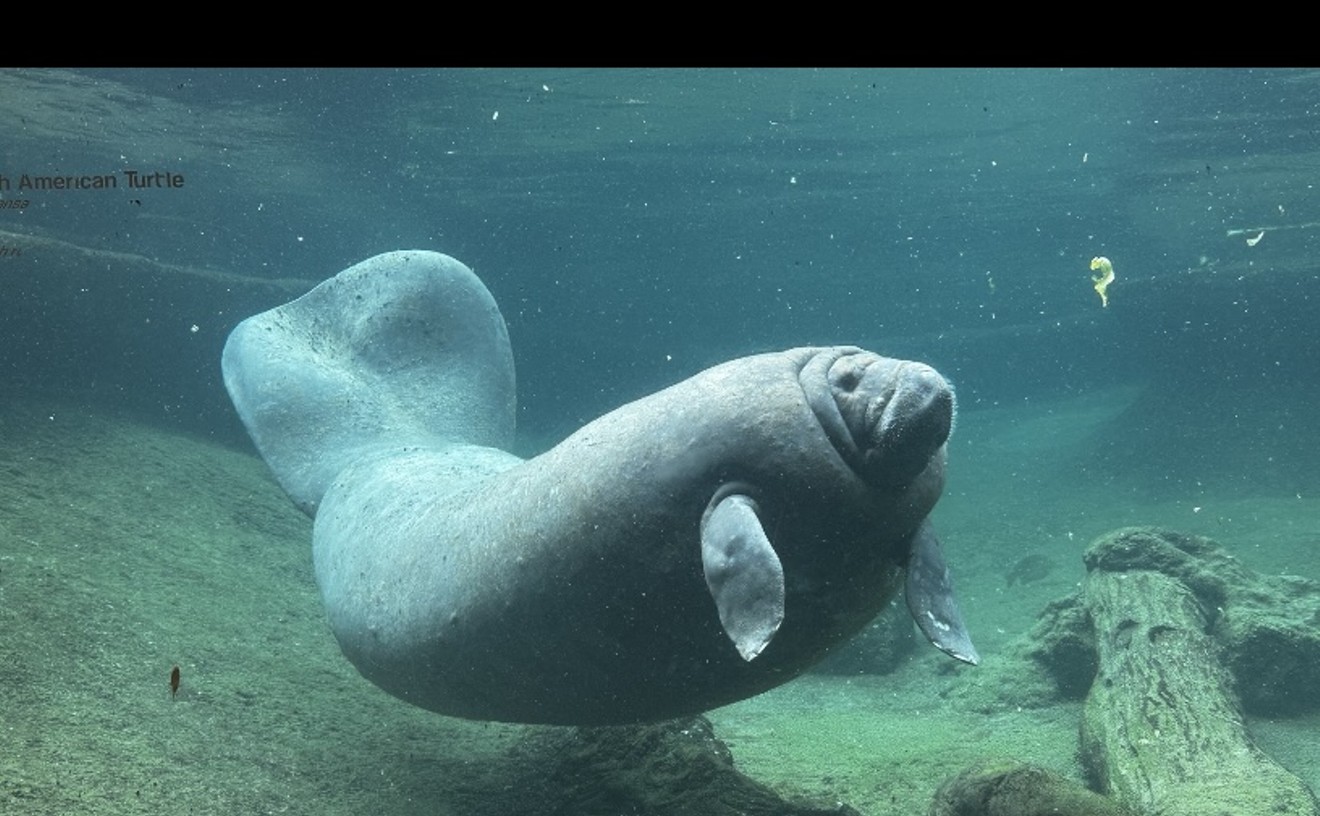“I came across injured, sick, and malnourished dogs. They were everywhere,” the 38-year-old says.
Ochoa and five of her friends created the Redland
But this past Saturday, April 9, a group of more than 20 volunteers from rescue organizations in Brevard County (in Central Florida near the Kennedy Space Center) headed to the Redland and joined Ochoa and her friends in saving the lives of 23 dogs.
In the past month, volunteers from nonprofit organizations from across the state have rescued more than 130 strays from the Redland and brought them back to places like Orlando and Tampa. The Brevard group has even collected more than $20,000 in donations to feed, vaccinate, and care for the rescues.
"It is clear that local animal control does not take the issue seriously,” says 28-year-old Samantha Cooper, coordinator of the Brevard group’s rescue trip. “It is tough on nonprofit, donation-run organizations to make these trips, but we care about these animals, and we will do whatever we can to save them.”
In an email, Miami-Dade County Animal Services Director Alex Muñoz said his $17-million-per-year organization has picked up 1,128 strays in the past 3 years. (UPDATE: He added that the county has visited the Redland thousands of times and that all indications are that there are fewer calls for strays now than there were a few years ago. He added that the activists have been offered free spaying and neutering; they've also been asked for photos of the rescued dogs "but none have been provided.")
This past Saturday morning, all rescue volunteers met in West Kendall. Some had left their homes at 5:30 a.m. They spent the first two hours of the morning unloading and organizing the thousands of dollars' worth of food, pet supplies, and other items that filled five cars, two
At noon, the 13-car caravan set off to search for strays. At the volunteers' first stop, they spotted a small dog that ran away into the fields before rescuers could get within 40 feet. This would happen three other times that day.
"Trust is something that has to be built up over time. Sometimes we think that's too long in our need to rescue, but that's life in the Redland; that's the reality of the Redland," says Gary Borland, a dog photographer from Clearwater who went on the trip and has rescued animals from the Redland twice before.
Their next location was a different story. Upon arrival at an unkempt house, a few strays in the yard immediately ran away. A litter of 2-week-old puppies, their mother, and a pregnant female remained under the house.
Rescuers squeezed beneath the home through a small hole and passed six 2-week-olds out to other volunteers, who took the puppies to an air-conditioned vehicle. They were then given water through a syringe, cleaned of fleas, and bathed. But the mother put up a fight. After two hours and two chewed-through leashes, she was retrieved.
But they found one dead puppy underneath the house, along with the bones of other animals that did not make it. While many lives have been saved in the Redland, many are still being lost.
In a 2012 straw ballot, 65 percent of county voters approved a property tax increase, equal to only $15 per average home, known as the Pets’ Trust Initiative, which would have generated $20 million per year toward animal sterilization and pet retention efforts. The Pets’ Trust Initiative received the support of about a half-million voters, but Miami-Dade Mayor Carlos Gimenez has declined to approve the measure.
(According to the Miami Herald, Gimenez said “common sense’’ dictates that more people oppose a tax increase than those who voted for it. He claimed he was following the people's will by not supporting the initiative. He and the commission have increased shelter funding by millions of dollars annually, though. )
"MDAS is not saving these animals because that would mean they need to euthanize more, and they don't want that on their record,” says Michael Rosenberg, cofounder of the Pets’ Trust Initiative. “And Gimenez is using their skewed euthanasia rate as a reason to not implement the Pets’ Trust, because he doesn't want a tax increase on his record.” (After publication of the story, the county produced a letter sent to Rosenberg offering help and expressing fear that some of the dogs being rounded up in the Redland could be stolen.)
Mayor Gimenez is up for reelection this August. His opponent, Raquel Regalado, has said she would immediately honor the Pets’ Trust Initiative if she's elected.










